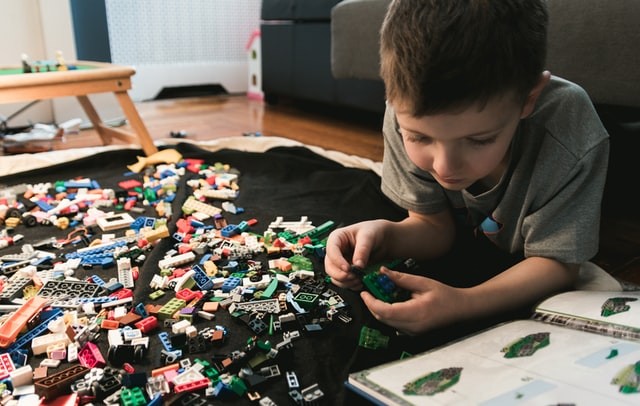Why LEGO is Good for Your Child's Brain

There is no brand more synonymous with childhood than LEGO. For more than 80 years, children have been building plastic brick structures in nearly every shape and size imaginable. Kids have been enjoying these colorful and sturdy toys for decades, but only recently has science begun to discover why this construction toy is beneficial for their development at such a young age. Recent studies have shown impressive progress in motor, social-emotional, and cognitive skills in toddlers exposed to one of the finest building block systems-LEGO.
For many kids, their love for Legos began as soon as they learned how to stack them. As colorful, wonderful blocks that came in fantastic shapes, sizes, and pieces, these toys ignited the imaginations of children everywhere. Based on figures provided by the Lego Group's website, the Lego Play theme and LEGO minifigures rank among some of the top sellers for kids internationally. LEGO Education also provides educational materials geared toward schools. This education section includes lesson plans and research studies that indicate the benefits of using Legos.
It might be a toy everyone knows about, but it's sometimes hard to convince parents that their child could benefit from playing with it. If you would like to get a better idea of the benefits that Legos have to offer, then keep reading! Playing with Legos can help your child develop in ways that they don't even realize.
Contrary to popular belief, the LEGO brick is not a toy for just construction and engineering enthusiasts. It can certainly help strengthen your children's math and logic skills, but much more importantly, they'll build spatial skills that can make them a talented artists, designers or architects in the future. Although building with LEGO bricks may strike you as a basic skill that all kids would possess, research shows that these spatial abilities are acquired rather than innate.
Math skills
LEGO Bricks! Some of you will recall that as the title of a classic 80s song. Some of you might be wondering what on earth I am babbling about. Either way, they are still around today and still pretty darn cool! But did you know that LEGO is also a fantastic tool to assist your child in developing positive mathematical thinking behaviors? The key to developing a love of math and building a great foundation for your child's future education is using LEGOs as math tools.
LEGO bricks have been around for more than 50 years and were invented in Denmark in 1932. The word LEGO is an abbreviation that comes from two Danish words: "leg godt," which means "play well." To date, more than 400 billion LEGO pieces have been produced, and they come in a variety of colors and shapes. In the past 5 years, I've noticed LEGO getting onto school agendas more and more. Teachers are using LEGO elements to teach math along with other subjects like English, history, art or science. You can use LEGO bricks as a hands-on learning tool that will engage your children while improving their math skills at the same time.
Engineering skills
Gabriel is three years old, and he loves LEGOs. His favorite thing to create is a fire truck. From the tires to the lights to the firehose, at least one toy ends up in his hands with a LEGO brick. It's a lot of fun to watch him work as he concentrates on creating and how it all fits together. There is a science behind it that we haven't done yet, but one day we will celebrate the science behind why he loves building things so much.
It's no secret that kids love to build toys out of LEGOs. It's also no secret that it's a great way to develop their imaginations, hand-eye coordination, and communication skills. Construction play is perhaps the best play there is. It helps kids build their imagination and creativity, as well as their engineering skills.
Puzzle-solving
A research study showed that children who play with LEGO could solve complex puzzles better than their non-LEGO playing peers. Why is this the case? Puzzle-solving is the cornerstone of developing brains. As parents, it's our job to help our offspring navigate a sea of possibilities to find success. We all know the old saying that practice makes perfect, but now a new study shows just how powerful this adage really is when applied to puzzle solving.
© 2024 ParentHerald.com All rights reserved. Do not reproduce without permission.
* This is a contributed article and this content does not necessarily represent the views of parentherald.com
